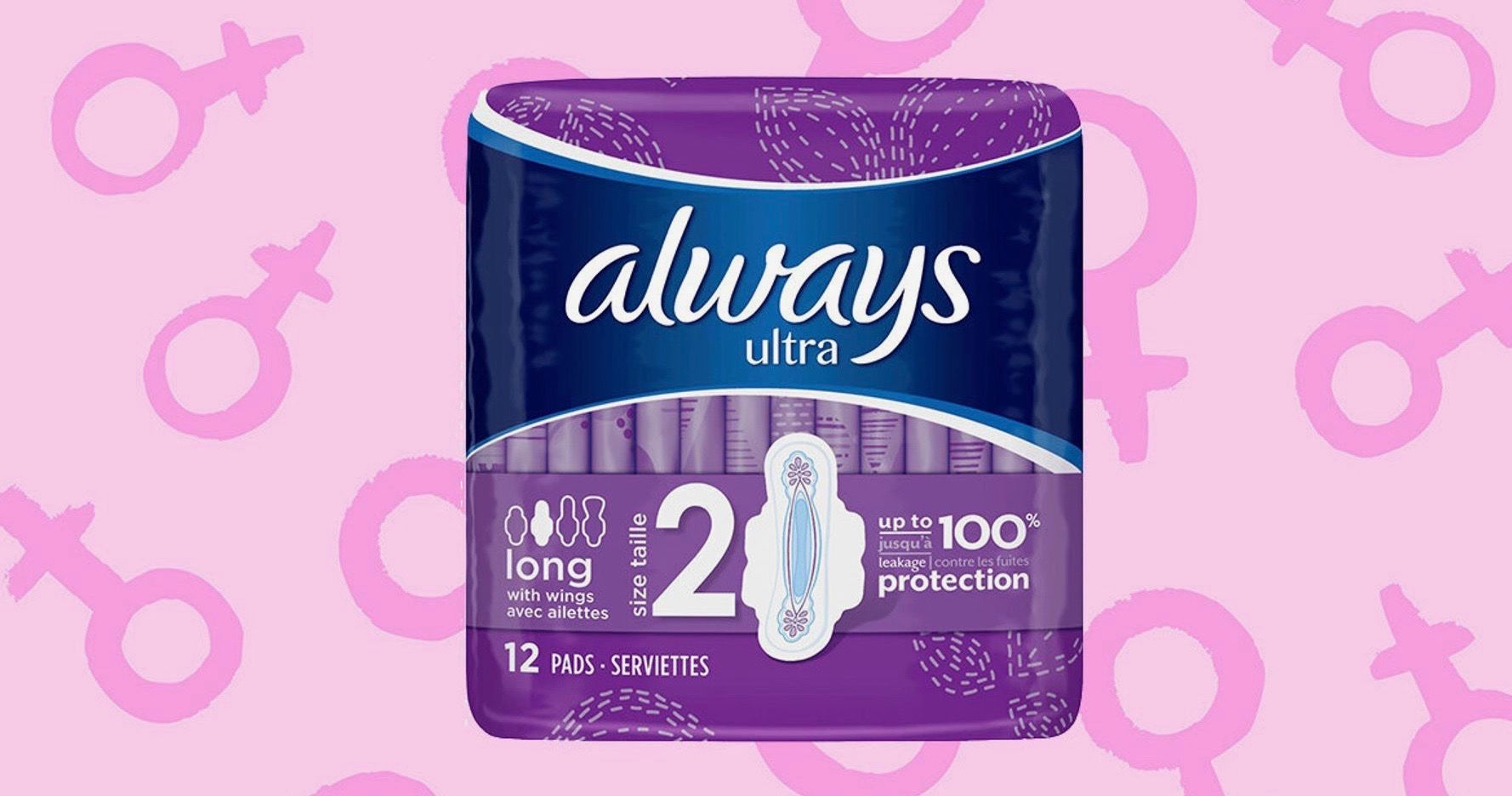Always has decided to remove the Venus symbol from the packaging of its sanitary products in an effort to be inclusive of transgender and nonbinary customers. The company has traditionally used the symbol on its products to represent the female sex.
Transgender activists and allies had urged Procter & Gamble to withdraw the gender symbol from its products, stating that not all people who menstruate are women and that not all women menstruate. Other companies, such as Lyft, Mastercard, and Tinder, have also sought to be more inclusive of transgender consumers.
"For over 35 years, Always has championed girls and women, and we will continue to do so," Procter & Gamble said Tuesday in a statement. "We're also committed to diversity & inclusion and are on a continual journey to understand the needs of all of our consumers."
"We routinely assess our products, packaging, & designs, taking into account consumer feedback, to ensure we are meeting the needs of everyone who uses our products," the company added.
The company said it would start removing the female signs from its packaging in December and hopes to have a new design distributed worldwide by February 2020. LGBTQ advocates said that although the decision may seem inconsequential, it will have a profound impact on transgender and nonbinary people.
“This is a great move,” said Dr. Jack Turban, a resident physician in psychiatry at Harvard Medical School. “First of all, the symbol is unnecessary. Second of all, it sends a message to transgender and non-binary people who need these products that their identities are embraced and supported by the company.”
Steph deNormand, the Trans Health Program manager at Fenway Health, also welcomed the change, saying that “female-coded” imagery not only intensifies gender dysphoria for transgender and gender-nonconforming people but also keeps them from purchasing or accessing sanitary products.
“For folks using these products on a nearly monthly basis, it can be harmful and distressing to see binary/gendered images, coding, language and symbols. So, using less coded products can make a huge difference,” deNormand said. “Trans and nonbinary folks are constantly misgendered, and a gesture like this can broaden out the experiences and open up spaces for those who need the products.”
Unsurprisingly, Procter & Gamble’s announcement has also been met with transphobic comments online. The Daily Mail, a conservative UK tabloid, says the company has kowtowed to the “transgender lobby” and that women in the UK were planning on boycotting the brand. Others have accused the company of attempting to “erase women” by catering to transgender and nonbinary people as well.
“Menstruation can occur for anyone with a uterus,” Turban wrote. “There are many medications that stop or lighten periods (used by both cisgender and transgender people), but these do not completely stop menstruation for all people.”
DeNormand also remarked that not all trans and nonbinary people take hormones that can impede menstruation. “While for a lot of people who take testosterone, the bleeding often decreases or goes away, for some it doesn’t,” deNormand explained. “And for others, taking hormones does not affirm their gender and is not the goal, so they may have a regular menstrual cycle.”
Although some have rallied to boycott the brand, it is unlikely that the omission of the Venus symbol will have any long-term effects. Other such anti-LGBTQ boycotts of multinational companies, including Coca-Cola, Starbucks and Target have failed miserably.
“The greatest predictor of good mental health among transgender and nonbinary people is feeling that they are accepted,” Turban said. “The company is showing that it accepts, respects, and cares about this population, which is a powerful statement for a community that is so often marginalized and rejected.”
RELATED: Mom Shares Hack To Ensure Child Is Prepared For When Their First Period Hits
Always, a brand of feminine hygiene products, including maxi pads, ultra thin pads, pantyliners, and feminine wipes, was first introduced in the United States in test markets in 1983, then nationally in May 1984. By the end of 1984, the brand was launched internationally in the United Kingdom, Canada, France, Germany, and Africa. According to Rising Tide: Lessons from 165 Years of Brand Building at Procter & Gamble, Always was Procter & Gamble's first truly global brand.

